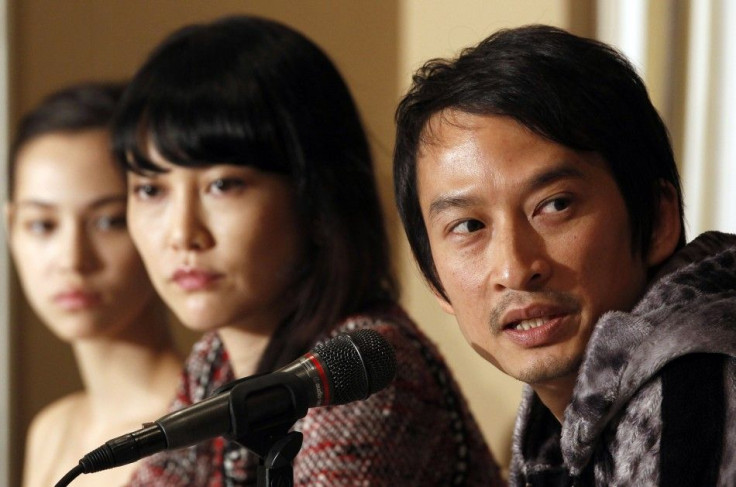'Norwegian Wood': Two Birds, One Stone

Melodrama for its own sake has never looked so good.
Norweigan Wood, which opened in limited U.S. release Friday after a 2010 premiere at the Toronto Film Festival, is a frank coming-of-age love story weighted by mental illness, suicide, and exaggerated mood cues.
Adapted from Haruki Murakami's 1987 novel of the same name, which first (officially) appeared in the U.S. in 2000, writer/director Tran Anh Hung's screenplay never leaves the youthful awakening period the book refers to in flashback. The film has a dreamy, non-linear feel -- hinting at the novel's preoccupation with memory construction -- but the story unfolds in sequence.
We first meet Toru Watanabe (Kenichi Matsuyam) as the contented third wheel of Naoko (Rinko Kikuchi, Babel) and Kizuki -- Watanabe's best friends, and each other's soulmates. The tragedy that propels the narrative (and Naoko descent's into madness) is delivered with chilling precision just minutes into the film.
Two years later, when Watanabe is a college student, he and Naoko reunite; awkwardly filling in the empty space that now stands between them without calling what used to be there by name. Their friendship is intensified on the evening of Naoko's twentieth birthday, when the drama of her instability and sexuality is revealed to Watanabe for the first time.
Unable to cope with the emotional aftermath of their intimacy (a seemingly hysterical response that is eventually explained), Naoko retreats to a bucolic sanitarium where Watanabe will visit during the course of her stay. But back at school, he falls under the spell of Midori (Kiko Mizuhara, in an impressive film debut), who is best described as the Japanese equivalent of the Manic Pixie Dream Girl.
The perfectly balanced love triangle is complicated by the intrusive presence of Reiko (Reika Kirishima), a fellow patient at Naoko's odd retreat who doubles as her chaperone (and perhaps more). Somewhat implausibly, Watanabe takes Reiko's unsolicited directives and constant presence at face value, never questioning the wisdom of Naoko being placed under her charge.
It warrants a mention that Hung is French-Vietnamese and does not speak Japanese at all -- he wrote the screenplay in French and it was subsequently translated into Japanese. A nitpicky viewer with no knowledge of Japanese may wonder at times if and where the final translation -- flat, repetitive dialogue in the subtitles -- was lost.
Then again, Norwegian Wood is Murakami's most straightforward novel: Though the narrator is 37, the voice is steadfastly naïve; even sophomoric -- with the occasional cringeworthy turn of phrase. Murakami is famously protective of his work, and rarely gives the rights for an adaptation: Norwegian Wood is the first of his full-length novels to be made into an internationally distributed feature.
Hung has said that one of Murakami's (few) conditions was budget approval -- indeed, no expense appears to have been spared in the production. The Beatles recording of Norwegian Wood is heard, and Radiohead's Jonny Greenwood composed the mesmerizing score (only his second, after There Will be Blood).
The costume and set design gets the period details right, but otherwise we never really feel as though we're in the late 1960s. There are the requisite backdrop shots of student uprisings, but for the most part the audience is as disengaged from the political climate as the film's lead characters are.
Ping Bin Lee's cinematography is a marvel -- frame after frame, the scenes are breathtaking to consume, with some drenched in color so rich it makes one wonder if the film was treated. That the movie is so achingly gorgeous lends the story an air of importance it may not deserve, like a vivid dream forgotten by sunrise.
© Copyright IBTimes 2024. All rights reserved.












